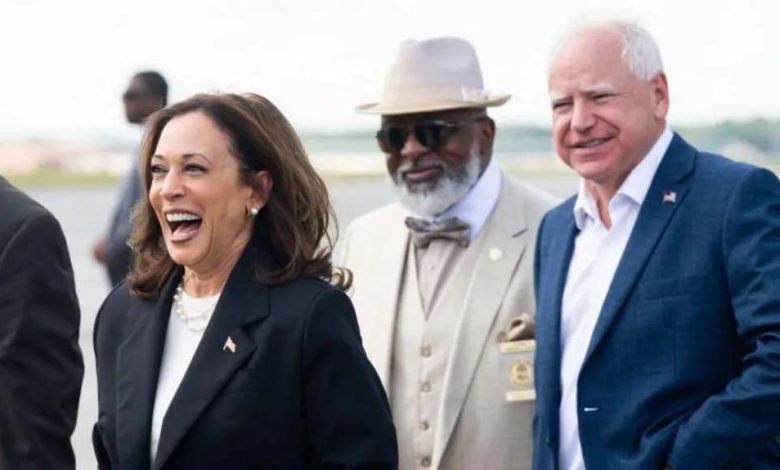Kamala Harris defends White House record in first interview ahead of US elections


US Vice-President Kamala Harris has defended her shifts on policy, President Joe Biden, and her time in the White House in her first interview since becoming the Democratic nominee.
Ms Harris argued that the Biden administration was able to reduce illegal border crossings in recent months and “recover the economy” after the pandemic.
She called the White House’s policies a “success”, specifically pointing to a decline in prescription drug costs and the unemployment rate: “That’s good work. There’s more to do.”
Ms Harris appeared in the pre-recorded CNN interview with her running mate, Minnesota Governor Tim Walz. It was her first as a presidential candidate.
The vice-president was forced to defend the White House’s economic track record, as inflation and high cost-of-living prices continue to sting American pocketbooks. Polls have regularly suggested that voters would prefer Republican candidate Donald Trump’s handling of the economy.
But the most tense exchanges between Ms Harris and CNN interviewer Dana Bash centred on the assertion that the Democratic nominee’s policy positions had undergone “changes” during her time as vice-president and as a presidential candidate.
“I think the most important and most significant aspect of my policy perspective and decisions is my values have not changed,” she said when asked why her positions shifted in recent years.
Trump had already dismissed the vice-president’s first interview, which lasted 27 minutes, before its release because it was pre-taped and included Mr Walz.
He used a single-word in his review after it concluded.
“I have always believed, and I’ve worked on it, that the climate crisis is real, that it is an urgent matter,” she said.
The vice-president pointed to the Biden administration’s work on the Inflation Reduction Act, which funnelled hundreds of billions of dollars to renewable energy and electric vehicle tax credit and rebate programs.
“We have set goals for the United States of America, and by extension the globe, around when we should meet certain standards for reduction of greenhouse gas emissions.”



